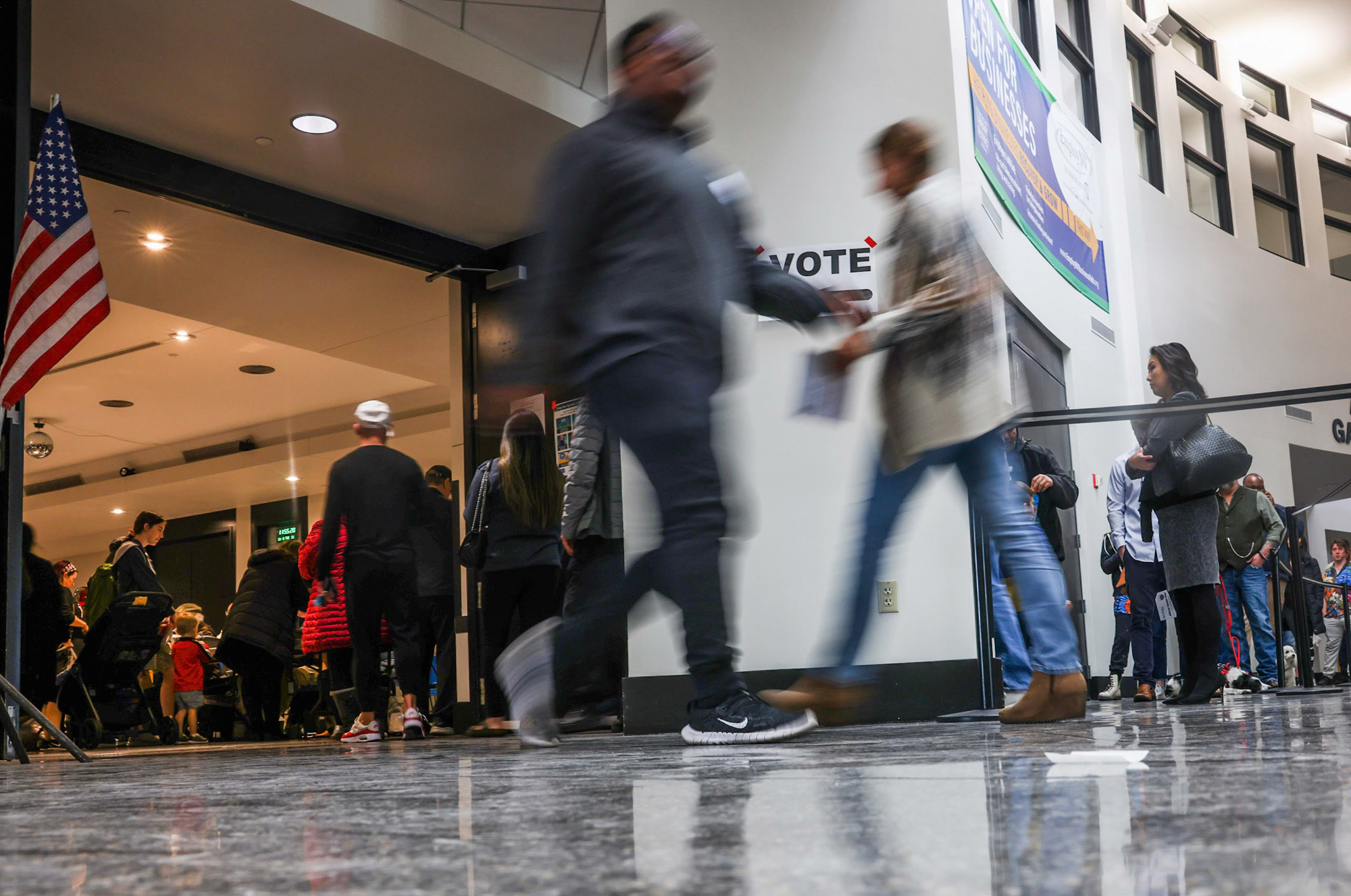Asked in a recent focus group what he thinks about abortion, one 60-year-old Nevada man expressed his frustration that his opinion was even in play.
“What goes on between a woman and a child has nothing to do with me. I just need to mind my own business,” he said.
This “none of my business” attitude reflected the overall tone of a focus group on abortion held in late September by Navigator Research, a consortium of pollsters led by Global Strategy Group, one of the largest Democratic polling firms in the U.S.
In an hourlong conversation over Zoom, a group of five men of color (all are nonpartisans) living in Nevada expressed their concerns about eroding reproductive rights and political polarization, with each participant expressing that it should be up to an individual woman to decide whether she should have an abortion. Their names have been omitted at the request of focus group organizers so they could freely express their feelings during the session.
Through the focus group, officials with Navigator Research said that they wanted to better understand how Black and brown men respond to key issues and messages, calling them “difference-makers” and some of the “most critical parts of the electorate.”
The men all agreed that the 2022 overturning of Roe v. Wade — which sparked a wave of state abortion restrictions throughout the country — has limited women’s reproductive freedom and is symptomatic of a democracy in jeopardy. They also expressed concerns about abortion access in Nevada, saying the cost — up to $800 for a medication abortion, according to Planned Parenthood — is too high. And they worried aloud about access to the procedure in the state, although abortion remains legal here up until 24 weeks.
This year, abortion is also on Nevada’s ballot, a move that the men welcomed. Ballot Question 6 would build on existing protections by enshrining abortion rights in the Nevada Constitution if passed. The question would need to be approved in 2026 as well before the Constitution is amended.
One participant in his late 20s said he felt that crackdowns on abortion following Roe v. Wade’s overturning has made the issue even more difficult to discuss.
“The public discourse makes it harder to talk about,” he said. “Kind of brought us back to the stone ages.”
A significant chunk of the men, however, said that they believe that abortions remain fairly accessible in the state. The morning after pill — a type of emergency contraception — and other forms of birth control such as IUDs remain widely available, assuaging some of their concerns about access to reproductive care. Some said they’ve accompanied friends and loved ones to clinics for abortions as well.
Most of the participants in the group expressed hesitancy about Vice President Kamala Harris’ candidacy, even though she has championed reproductive rights and has been able to consolidate Black and Latino support, especially those who soured on Biden. They felt that as vice president, she should’ve already been able to implement some of her political promises about protecting civil rights and bettering the economy.
“I think Democrats protect abortion, but Harris is definitely a follower, so she’s taking leads from other people in the Democratic Party. It’s really not good,” said another participant in his 60s.
That hesitance aside, a September poll from Howard University shows that some 82 percent of Black swing state voters say they’ll vote for Harris.
The group also soured on former President Donald Trump, with one participant calling him “destructive.”
Although Trump has declined to endorse a national abortion ban, he’s also courted anti-abortion groups, calling himself the “most pro-life president in American history.” Meanwhile, Project 2025 — the 900-page playbook from former Trump aides and the conservative Heritage Foundation — proposes entirely banning emergency contraception.
The focus group, however, remains hopeful that abortion will remain accessible in Nevada.
“We’re in the middle of election season, so we’ll see what happens in the next four years, but everything seems like it’s good right now,” said one participant, who is in his late 20s.

